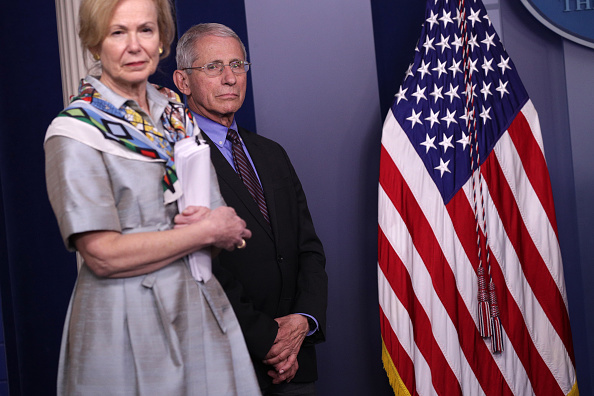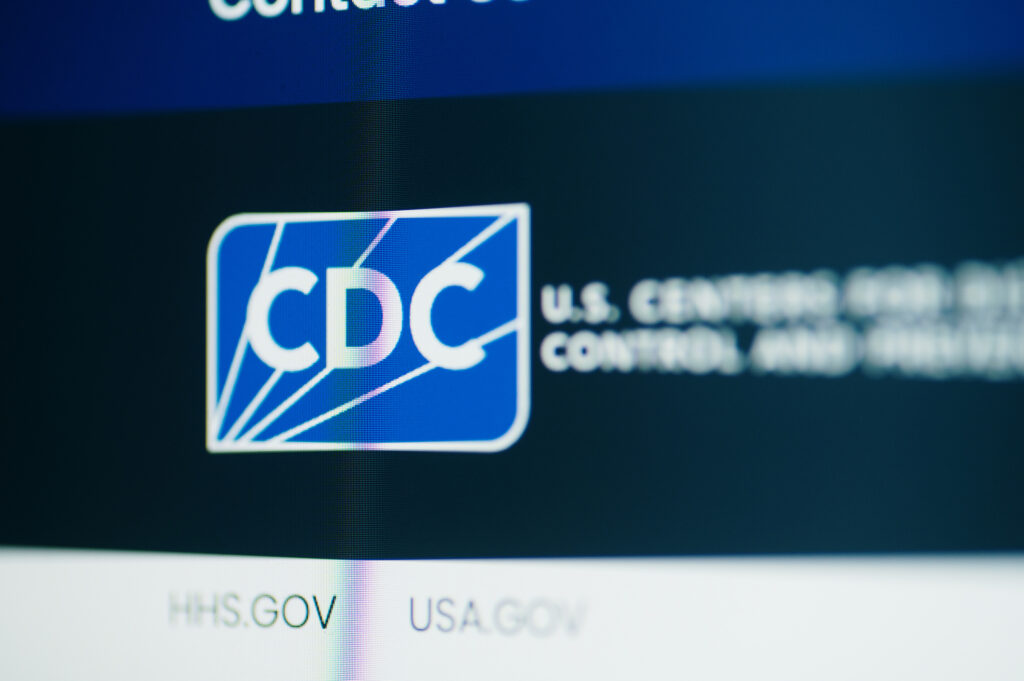Anthony Fauci, the retired director of the National Institute of Allergy and Infectious Diseases (NIAID), doubled his fortune from $7.6 million to more than $15 million from January 2019 and the end of 2023, the watchdog group Open the Books reports.
Fauci earned $3.5 million in his first year of retirement in 2023 alone. In March, he reportedly sold his memoirs to a subsidiary of Penguin Random House for $5 million.
In addition to those windfalls, taxpayers were paying $15 million for Fauci’s personal security detail provided by the U.S. Marshals Service. President Donald Trump terminated that arrangement three days after taking office this year.
NIH Royalties
Fauci is among a group of National Institutes of Health (NIH) employees who earned undisclosed amounts in royalties for the mRNA vaccines.
Moderna alone admitted to making what it described as a “catch-up royalty payment of $400 million to the National Institute of Allergy and Infectious Diseases” in 2022. As part of the licensing agreement, Moderna said NIAID also would receive ongoing royalties on net sales of Moderna’s vaccines, which brought in over $36 billion in revenue from 2020 to 2022.
Although NIH provided the names of royalty recipients from its various agencies, it did not specify the amounts paid to those individuals.
Civil Servant Perks
The notion of government regulators earning royalties from products they are charged with regulating raises ethical concerns regarding the objectivity of that regulation, a concept known as regulatory capture.
Fauci’s career is a classic case of regulatory capture, says John Dale Dunn, M.D., a physician, attorney, and policy advisor to The Heartland Institute, which co-publishes Health Care News.
“What we appear to be witnessing in the mutual profit of these vaccine manufacturers and the regulators in charge of their oversight is the reciprocity end of the regulatory capture of the institutions meant to protect Americans from predatory pharmaceutical interests,” said Dunn. “This is a classic case of the problem of corruption that comes when regulated industries buy influence with their regulators.
“It’s just as bad in America as it is in the tinpot banana-republic dictatorship oligarchies of lesser nations,” said Dunn.
Congressional Concerns
Congressional legislators have expressed concerns about the potential conflicts of interest. Sen. Rick Scott (R-FL) and Sen. Rand Paul, M.D. (R-KY) in March reintroduced a bill to improve transparency of royalty payments to government employees. In a press release announcing the bill, the lawmakers stated a lack of transparency prevents taxpayers from holding federal government personnel accountable for conflicts of interest and other abuses.
“Distrust in public health officials is at an all-time high,” stated Paul. “One way to restore trust is to make sure that public policy isn’t influenced by personal gain. The Royalty Transparency Act will allow more information to be seen by the public to ensure federal decision makers, and the policies they write, aren’t being influenced by the royalty payments they receive.”
Other potential conflicts of interest arise from the fact that one of the NIH watchdogs tasked with investigating agency employees like Fauci is Christine Grady—Fauci’s wife.
Ethical Leeway
A doubling of the wealth of a public servant during a crisis that arises in his bailiwick is not necessarily proof of ethical violations, says medical ethicist Merrill Matthews, Ph.D., a resident scholar with the Institute for Policy Innovation.
“Fauci was considered by some to be the top infectious disease expert in the world, though COVID-19 destroyed that belief,” said Matthews. “Most of the Open the Books criticisms are over how much money Fauci and his wife made. And while it may be unseemly, I don’t know that’s unethical.
“I certainly think Fauci did a deplorable job handling COVID, and especially his involvement in gain of function,” said Matthews. “But did he make unethical decisions or just bad decisions? I just don’t think I know enough to publicly criticize him.”
Gain of Function Prohibitions
Following his contentious exchanges with Fauci, Paul introduced the Royalty Transparency Act in March of 2024.
Fauci flatly denied involvement in the funding or facilitating of gain-of-function research, though his agency provided a grant as recently as 2022 to the EcoHealth Alliance to conduct research in conjunction with the Wuhan Institute of Virology, even though NIH found the organization out of compliance with the terms of earlier grants.
On October 13, 2022, Select Subcommittee on the Coronavirus Crisis Ranking Member Steve Scalise (R-LA), House Committee on Oversight and Reform Ranking Member James Comer (R-KY), and House Committee on the Judiciary Ranking Member Jim Jordan (R-OH) issued a scathing news release demanding answers regarding the grant.
“We have grave concerns that one of your last acts at NIAID is to send even more taxpayer dollars to an organization whose prior involvement in the very same subject may have contributed to a global pandemic,” the lawmakers wrote in their 2022 letter. “We write seeking information about your decision, including whether anyone at NIH has a financial or other non-official interest in EcoHealth continuing to receive taxpayer funds.”
In April, White Coat Waste Project, a public-health watchdog group, revealed the U.S. government had given EcoHealth a total of $60 million in funding since the pandemic
Kevin Stone ([email protected]) writes from Arlington, Texas.



